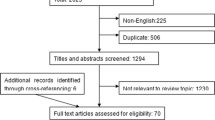Abstract
Background
Although serum NY-ESO-1 antibodies (s-NY-ESO-1-Abs) have been reported in patients with esophageal carcinoma, this assay system has not been used to study a large series of patients with various other cancers.
Patients and methods
Serum samples of 1969 cancer patients [esophageal cancer (n = 172), lung cancer (n = 269), hepatocellular carcinoma (n = 91), prostate cancer (n = 358), gastric cancer (n = 313), colorectal cancer (n = 262), breast cancer (n = 365)] and 74 healthy individuals were analyzed using an originally developed enzyme-linked immunosorbent assay system for s-NY-ESO-1-Abs. The optical density cut-off value, determined as the mean plus three standard deviations for serum samples from the healthy controls, was fixed at 0.165. Conventional tumor markers were also evaluated in patients with esophageal carcinoma.
Results
The positive rate of s-NY-ESO-1-Abs in patients with esophageal cancer (31 %) was significantly higher than that in the other groups: patients with lung cancer (13 %), patients with hepatocellular carcinoma (11 %), patients with prostate cancer (10 %), patients with gastric cancer (10 %), patients with colorectal cancer (8 %), patients with breast cancer (7 %), and healthy controls (0 %). The positive rate of s-NY-ESO-1-Abs was comparable to that of serum p53 antibodies (33 %), squamous cell carcinoma antigen (36 %), carcinoembryonic antigen (26 %), and CYFRA 21-1 (18 %) and gradually increased with the tumor stage.
Conclusions
The positive rate of s-NY-ESO-1-Abs was significantly higher in patients with esophageal cancer than in patients with the other types of cancers. On the basis of its high specificity and sensitivity, even in patients with stage I tumors, s-NY-ESO-1-Abs may be one of the first choices for esophageal cancer.



Similar content being viewed by others
Abbreviations
- CEA:
-
Carcinoembryonic antigen
- PBS:
-
Phosphate-buffered saline
- SCC:
-
Squamous cell carcinoma
- SCC-Ag:
-
Squamous cell carcinoma antigen
- s-NY-ESO-1-Abs:
-
Serum NY-ESO-1 antibodies
References
Shimada H, Yajima Satoshi, Oshima Yoko, et al. Impact of serum biomarkers on esophageal squamous cell carcinoma. Esophagus. 2012;9:131–40.
Shimada H, Nabeya Y, Okazumi S, et al. Prediction of survival with squamous cell carcinoma antigen in patients with resectable esophageal squamous cell carcinoma. Surgery. 2003;133:486–94.
Shimada H, Nabeya Y, Okazumi S, et al. Prognostic significance of CYFRA 21-1 in patients with esophageal squamous cell carcinoma. J Am Coll Surg. 2003;196:573–8.
Lubin R, Zalcman G, Bouchet L, et al. Serum p53 antibodies as early markers of lung cancer. Nat Med. 1995;1:701–2.
Shimada H, Kagaya A, Shiratori T, et al. Detection of anti-CUEC-23 antibodies in serum of patients with esophageal squamous cell carcinoma: a possible new serum marker for esophageal cancer. J Gastroenterol. 2009;44:691–6.
Shimada H, Takeda A, Arima M, et al. Serum p53 antibody is a useful tumor marker in superficial esophageal squamous cell carcinoma. Cancer. 2000;89:1677–83.
Shimada H, Nabeya Y, Okazumi S, et al. Prognostic significance of serum p53 antibody in patients with esophageal squamous cell carcinoma. Surgery. 2002;132:41–7.
Chen YT, Scanlan MJ, Sahin U, et al. A testicular antigen aberrantly expressed in human cancers detected by autologous antibody screening. Proc Natl Acad Sci U S A. 1997;94:1914–8.
Xu YW, Peng YH, Chen B, et al. Autoantibodies as potential biomarkers for the early detection of esophageal squamous cell carcinoma. Am J Gastroenterol. 2014;109:36–45.
Mashino K, Sadanaga N, Tanaka F, et al. Expression of multiple cancer-testis antigen genes in gastrointestinal and breast carcinomas. Br J Cancer. 2001;85:713–20.
Shan Q, Lou X, Xiao T, et al. A cancer/testis antigen microarray to screen autoantibody biomarkers of non-small cell lung cancer. Cancer Lett. 2013;328:160–7.
Healey GF, Lam S, Boyle P, et al. Signal stratification of autoantibody levels in serum samples and its application to the early detection of lung cancer. J Thorac Dis. 2013;5:618–25.
Yang Z, Chevolot Y, Géhin T, et al. Improvement of protein immobilization for the elaboration of tumor-associated antigen microarrays: application to the sensitive and specific detection of tumor markers from breast cancer sera. Biosens Bioelectron. 2013;40:385–92.
Nakamura S, Nouso K, Noguchi Y, et al. Expression and immunogenicity of NY-ESO-1 in hepatocellular carcinoma. J Gastroenterol Hepatol. 2006;21:1281–5.
Middleton CH, Irving W, Robertson JF, et al. Serum autoantibody measurement for the detection of hepatocellular carcinoma. PLoS ONE. 2014;9:e103867.
Fujiwara S, Wada H, Kawada J, et al. NY-ESO-1 antibody as a novel tumour marker of gastric cancer. Br J Cancer. 2013;108:1119–25.
Gati A, Lajmi N, Derouiche A, et al. NY-ESO-1 expression and immunogenicity in prostate cancer patients. Tunis Med. 2011;89:779–83.
Long YY, Wang Y, Huang QR, et al. Measurement of serum antibodies against NY-ESO-1 by ELISA: a guide for the treatment of specific immunotherapy for patients with advanced colorectal cancer. Exp Ther Med. 2014;8:1279–84.
Kagohashi K, Satoh H, Ishikawa H, et al. A re-evaluation of squamous cell carcinoma antigen (SCC) as a serum marker for non-small cell lung cancer. Med Oncol. 2008;25:187–9.
Shimada H, Ochiai T, Nomura F. Titration of serum p53 antibodies in 1,085 patients with various types of malignant tumors: a multiinstitutional analysis by the Japan p53 Antibody Research Group. Cancer. 2003;97:682–9.
Wada H, Isobe M, Kakimi K, et al. Vaccination with NY-ESO-1 overlapping peptides mixed with Picibanil OK-432 and montanide ISA-51 in patients with cancers expressing the NY-ESO-1 antigen. J Immunother. 2014;37:84–92.
Acknowledgments
We thank the Ministry of Education, Culture, Sports, Science and Technology of Japan for Grants-in-Aid for Scientific Research (nos. 24591961 and 21591717).
Conflict of interest
The authors declare that they have no conflict of interest.
Author information
Authors and Affiliations
Corresponding author
Rights and permissions
About this article
Cite this article
Oshima, Y., Shimada, H., Yajima, S. et al. NY-ESO-1 autoantibody as a tumor-specific biomarker for esophageal cancer: screening in 1969 patients with various cancers. J Gastroenterol 51, 30–34 (2016). https://doi.org/10.1007/s00535-015-1078-8
Received:
Accepted:
Published:
Issue Date:
DOI: https://doi.org/10.1007/s00535-015-1078-8




